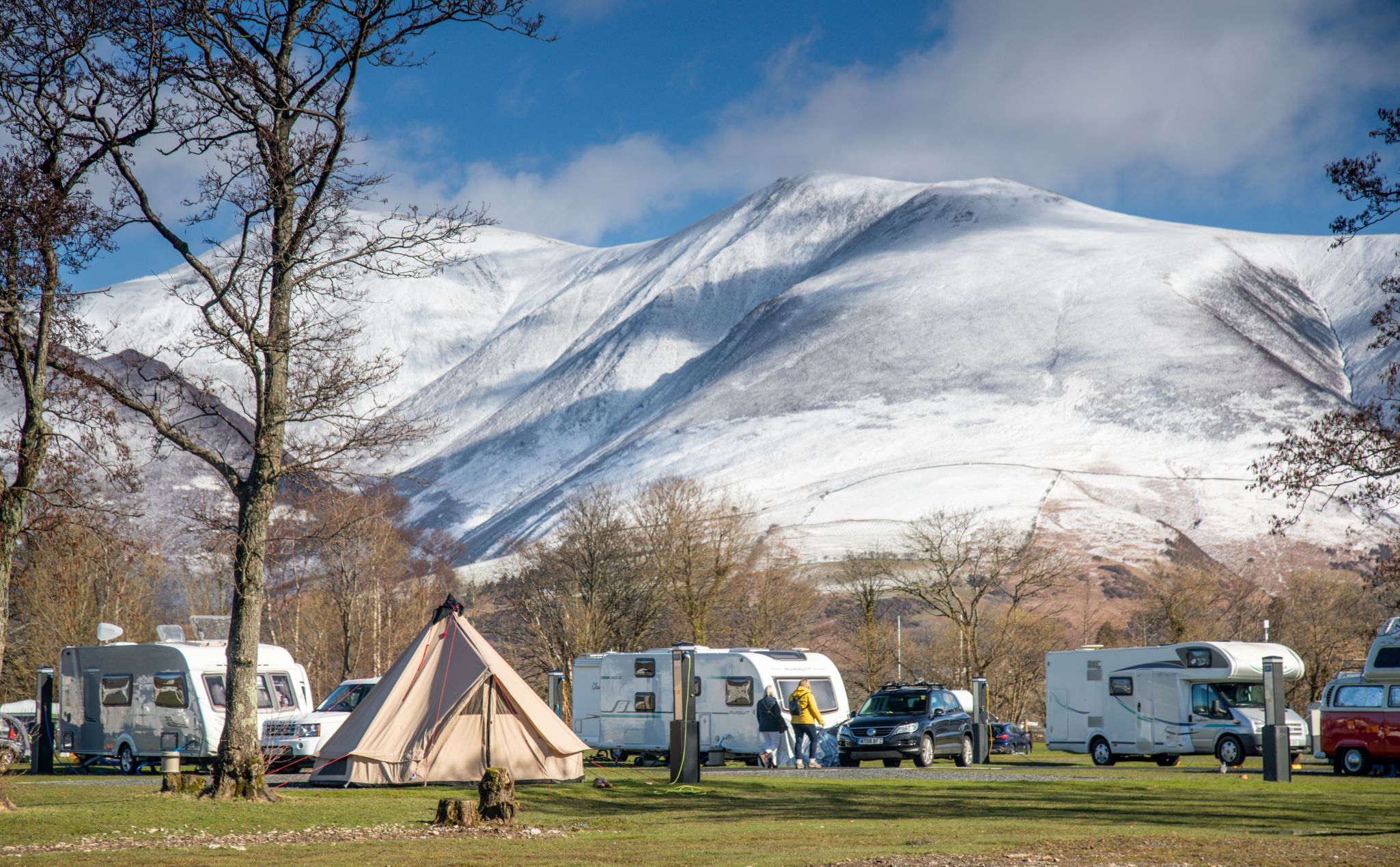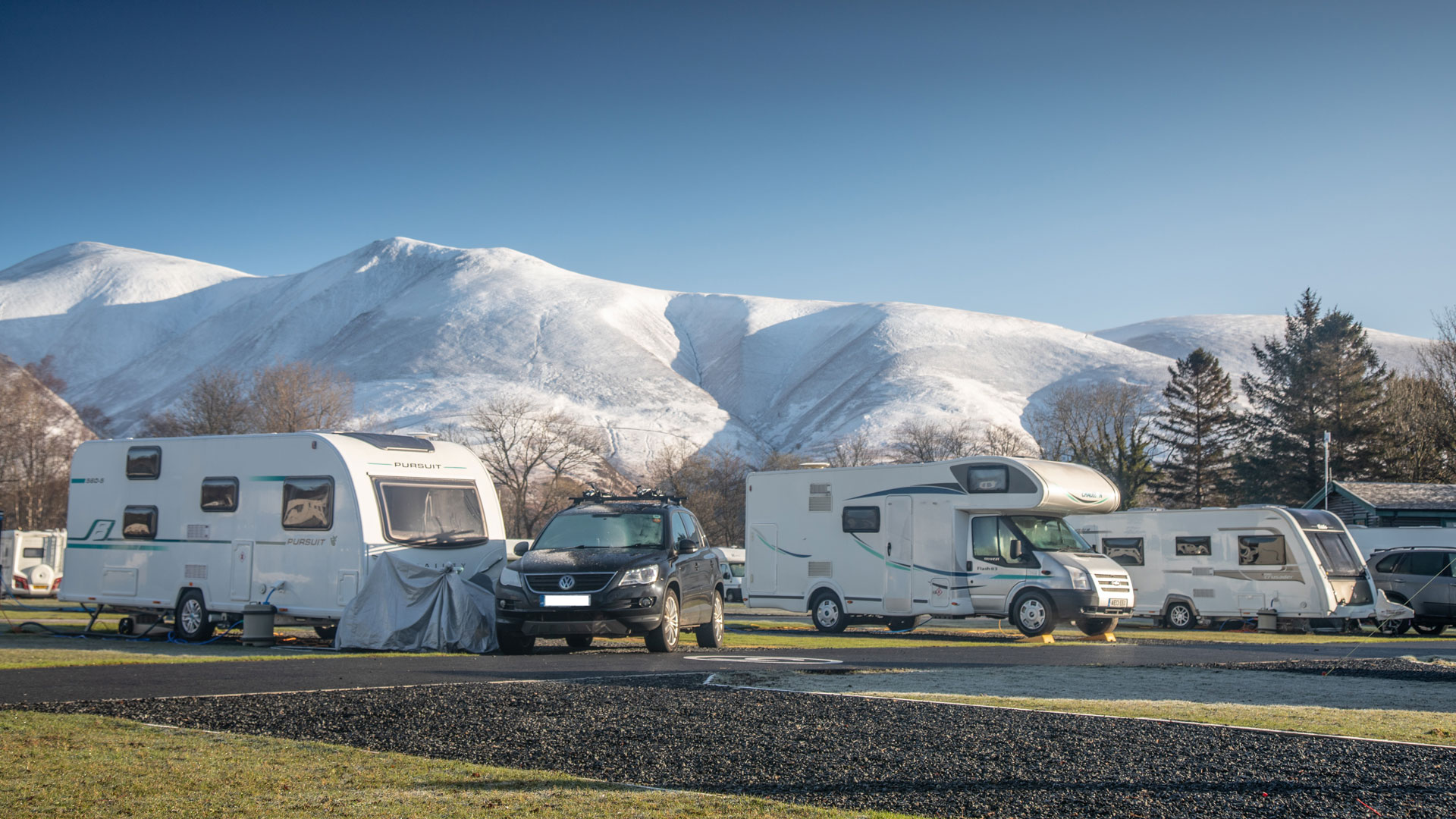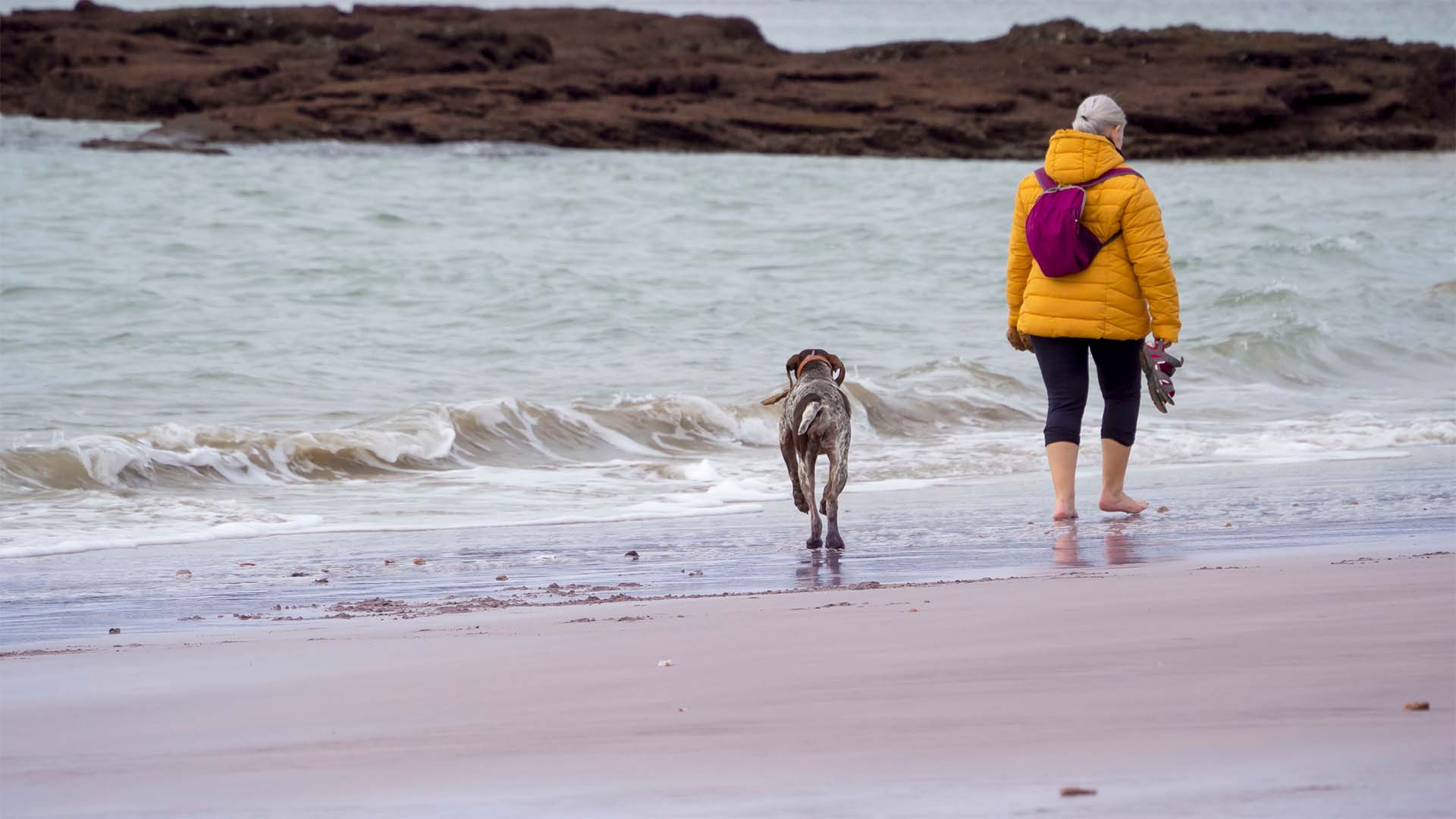The benefits of cold weather camping
Fancy crisp mornings, quieter attractions, and cosy nights spent stargazing? Cold weather camping has plenty of perks, which is where our year-round campsites come in. Still unsure? Here are our top reasons to embrace camping in cold weather, plus tips to make the most of your outdoor winter adventures.

Less crowds out of season
You’ll find everywhere is less busy outside of the school holidays. In the warmer months, crowds can be stressful, but with the colder weather, the volume of people decreases, leaving a more serene landscape to explore. Local attractions are calmer, walking trails will be less travelled, and you’ll find solace in the peace that comes with the colder months.
More availability and choice of pitch
Our campsites are generally quieter during the colder months, and availability becomes less of an issue, so you’re more likely to be able to book the pitch you want, where you want it. Search and book on the SiteSeeker app throughout the off-season, even when you’re on the move.
Fewer bugs and pests
You see far fewer insects and bugs in the winter as they go dormant and take shelter to survive the cold. This is great news for anyone prone to being bitten by insects like midges.
Stunning scenery in autumn and winter

This year, we’re calling the colder camping months the season of the senses and with good reason! Autumn brings the most spectacular show of colour across the UK, with oranges and yellows filling our landscapes for picture-perfect scenery to admire. Once the leaves fall and winter sets in, sparkling frosty mornings and snow-covered landscapes make camping around Christmas a special experience.
Best time for stargazing
The autumn and winter months are the very best for stargazing in the UK. Longer nights with often clear skies are perfect for stargazing, and there are plenty of astronomical events to look out for, including the Geminids meteor shower in December and the Quadrantids meteor shower in early January.
Could improve your sleep
This year, our poll revealed that 56% of campers sleep better outdoors thanks to the calming sounds of the incredible outdoors. The sound of raindrops on your unit, wind blowing through the trees and rustling leaves were some of the top reported sounds to send people off to sleep, all of which are almost guaranteed on a winter camping trip.
Unique wildlife spotting
The UK is home to a wide variety of wildlife, and there’s something to see year-round. Wildlife spotting in the winter could take you on a search for red squirrels in Scotland, seals in Norfolk or even on a bird watching adventure to see spectacular starling murmurations.
More dog-friendly beaches out of season

Many beaches that don’t allow dogs in the summer months are dog-friendly during the autumn and winter as the crowds decrease. A coastal winter holiday with your dog can be an excellent way to getaway. Picture windy walks, long games of fetch and warming fish and chips.
Our top tips for camping in cold weather
We’ve shared our top winter camping tips previously, but here are a few extras to ensure you’re as prepared as possible so there’s nothing to dampen your trip.
Invest in insulated camping gear
Having the correct camping gear will make your winter trips a breeze. Invest in kit like insulated sleeping pads, extra blankets and a 4 season tent in you’re tent camping.
Remember additional lighting
In the winter months, you’ll be camping with minimal hours of daylight. It’ll be dark when you wake up, and the evenings will get dark surprisingly quickly. Take torches, lanterns and plenty of spare batteries. If you have solar-charged items, remember that these won’t get much charge during the short days, so you’ll need backups.
Purchase hard ground pegs for tents or awnings
You’ll need to pack a selection of pegs for the winter months, as ground conditions can be unpredictable. Hard ground pegs made of steel are perfect for hard, stony conditions and should be able to get into frozen ground too.
Layers are essential
If you’re dressed properly, you’re less likely to feel the cold. Plenty of layers made from natural fibres like wool will keep you warm. It’s important to take more layers than you think you’ll need, including a hat, gloves and scarf. It’s also easier to stay warm than to get warm once you’re cold, so make sure to keep a check on how you’re feeling. Top your layers with good waterproofs in rainy weather and you’re set. If you’re expecting wet weather during your trip, you’ll want to read our tips for camping in the rain.
Pack a small shovel in case of snow
Camping in the snow provides perfect scenery, but you’ll need to pack a small shovel and be extra vigilant of the weather conditions. A shovel can be useful for levelling the snow where you’re looking to pitch and clearing excess snow from around your car if needed.
